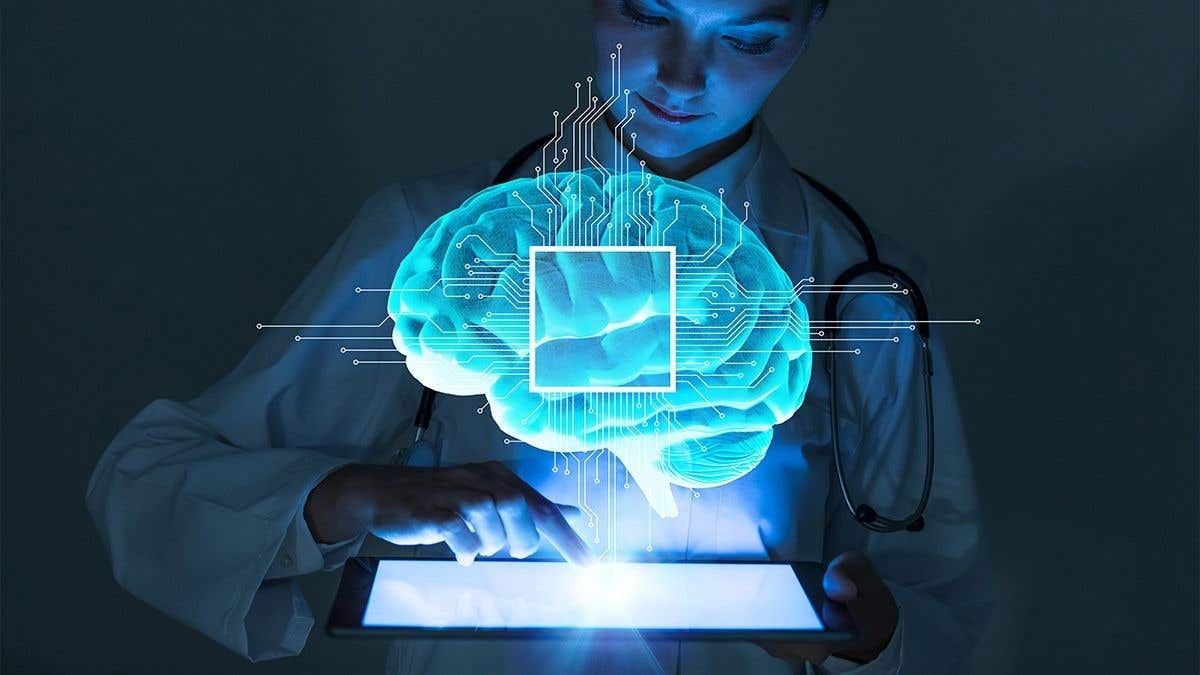New AI technology predicts likelihood of developing Alzheimer’s disease
This model can predict with 78.5% accuracy whether a person with mild cognitive impairment will remain stable or progress to Alzheimer’s

Diagnosing Alzheimer’s disease usually requires a comprehensive battery of assessments including interviews, brain imaging, blood tests, and cerebrospinal fluid analysis. Unfortunately, by the time these tests are conducted, significant memory loss and personality changes may have already begun.
Early intervention with pioneering treatments can slow the disease's progression, but predicting who will develop Alzheimer’s-related dementia remains challenging.
Researchers at Boston University (BU) have developed a promising new artificial intelligence (AI) model that could help address this challenge by analyzing a patient's speech. This model can predict with 78.5% accuracy whether a person with mild cognitive impairment will remain stable or progress to Alzheimer’s-related dementia over the next six years. This early diagnostic capability could enable clinicians to make earlier diagnoses and interventions, potentially slowing the disease's progression.
“We wanted to predict what would happen in the next six years—and we found we can reasonably make that prediction with relatively good confidence and accuracy,” says Ioannis (Yannis) Paschalidis, director of the BU Rafik B. Hariri Institute for Computing and Computational Science & Engineering. “It shows the power of AI.” The research team, consisting of engineers, neurobiologists, and computer and data scientists, published their findings in the journal Alzheimer’s & Dementia.
Paschalidis emphasizes the importance of early prediction. “If you can predict what will happen, you have more of an opportunity and time window to intervene with drugs and at least try to maintain the stability of the condition and prevent the transition to more severe forms of dementia,” he says.
Harnessing Speech Data for Prediction
To train their model, the BU researchers utilized data from the Framingham Heart Study, one of the nation’s oldest and longest-running studies focused on cardiovascular health. Participants showing signs of cognitive decline undergo regular neuropsychological tests and interviews, providing extensive longitudinal data on their cognitive well-being.
The research team analyzed audio recordings from 166 initial interviews with participants aged 63 to 97, all diagnosed with mild cognitive impairment. Among these participants, 76 remained stable over the next six years, while 90 experienced cognitive decline.
Related Stories
Using speech recognition tools and machine learning, the team trained their model to identify connections between speech patterns, demographics, diagnosis, and disease progression. After training the model on a subset of the participants, they tested its predictive accuracy on the remaining participants.
“We combine the information we extract from the audio recordings with some very basic demographics—age, gender, and so on—and we get the final score,” says Paschalidis. “You can think of the score as the likelihood, the probability, that someone will remain stable or transition to dementia. It had significant predictive ability.”
The model focuses on the content of the interviews rather than acoustic features like enunciation or speed. Paschalidis notes that the data they used was not pristine—recordings were often low-quality and filled with background noise. Despite these challenges, the model was able to make accurate predictions.
This ability to work with imperfect data is crucial for the project's goal of automating parts of the dementia diagnosis process. Future models could potentially provide routine monitoring through at-home apps, drastically increasing accessibility and allowing more people to be screened without the need for expensive lab tests or office visits. According to Alzheimer’s Disease International, the majority of people with dementia worldwide never receive a formal diagnosis, limiting their access to treatment and care.
AI and Equal Opportunity Healthcare
Rhoda Au, a coauthor of the study, highlights the potential of AI to create “equal opportunity science and healthcare.” The study builds on previous work by the same team, which demonstrated that AI could accurately detect cognitive impairment using voice recordings.
“Technology can overcome the bias of work that can only be done by those with resources, or care that has relied on specialized expertise that is not available to everyone,” says Au, a BU Chobanian & Avedisian School of Medicine professor of anatomy and neurobiology.
She finds it exciting that a method for cognitive assessment that could be inclusive across various demographics could serve as a potential screening tool for Alzheimer’s disease.
Looking ahead, Paschalidis and his team aim to explore using data from more natural, everyday conversations in addition to formal clinician-patient interviews. They are already considering projects that involve diagnosing dementia through smartphone apps and expanding their study to include other types of data, such as patient drawings and daily life patterns, to enhance the model’s predictive accuracy.
“Digital is the new blood,” says Au. “You can collect it, analyze it for what is known today, store it, and reanalyze it for whatever new emerges tomorrow.”
The development of this AI model represents a significant step forward in the early detection and diagnosis of Alzheimer’s disease. By leveraging the power of AI and speech analysis, researchers are paving the way for more accessible, efficient, and accurate cognitive impairment screening.
This advancement holds promise not only for improving individual patient outcomes but also for addressing broader healthcare challenges by providing equitable access to diagnostic tools and treatments.
Note: Materials provided above by The Brighter Side of News. Content may be edited for style and length.
Like these kind of feel good stories? Get the Brighter Side of News' newsletter.
Joshua Shavit
Science & Technology Writer | AI and Robotics Reporter
Joshua Shavit is a Los Angeles-based science and technology writer with a passion for exploring the breakthroughs shaping the future. As a contributor to The Brighter Side of News, he focuses on positive and transformative advancements in AI, technology, physics, engineering, robotics and space science. Joshua is currently working towards a Bachelor of Science in Business Administration at the University of California, Berkeley. He combines his academic background with a talent for storytelling, making complex scientific discoveries engaging and accessible. His work highlights the innovators behind the ideas, bringing readers closer to the people driving progress.



